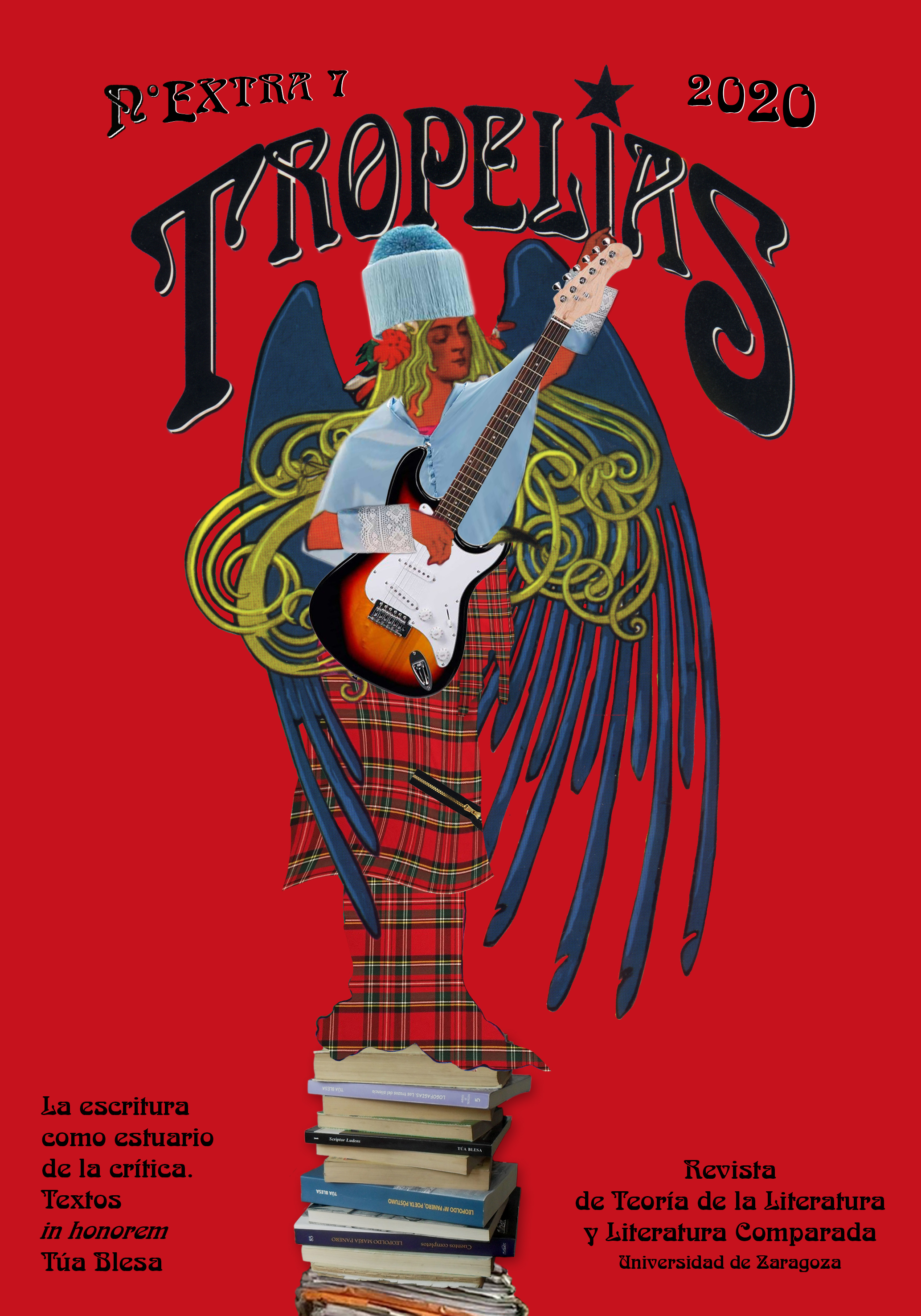Logophagies in the writing of Andrés Sánchez Robayna: ontolinguistic searches and ghosts of canarian colonial history
DOI:
https://doi.org/10.26754/ojs_tropelias/tropelias.202074789Keywords:
Andrés Sánchez Robayna, logophagies, silence, ghosts, postcolonial memory, Canary Islands, guanchesAbstract
The work of the Spanish writer Andrés Sánchez Robayna is marked by a great variety of expressions of silence, and in this essay, we want to propose a reading that is based on the theoretical contributions of the critic Túa Blesa about the traces of silence in contemporary poetry. It is about trying to understand how logophagies are articulated, what they are based on, and how they dialogue with the ontolinguistic researches that catalyze robaynian creation. These visible white spaces and silent traces, inherited from the Mallarmean tradition, establish numerous echoes with the essays, autopoetic texts and Diarios that Robayna often dedicates to the Canary Island space, a land that arouses his desire and his creation. We will be interested in highlighting several fragments of the Canarian poet that allude to the memorial and sacred void, to these ghostly gods that wander after colonization, visible and invisible, silent, and we will try to see the meeting points that may exist between Robayna's logophagic expressions and the search for the ghosts of the pre-colonial past.
Downloads
Downloads
Published
How to Cite
Issue
Section
License
Copyright (c) 2020 Claire Laguian

This work is licensed under a Creative Commons Attribution 4.0 International License.
Los artículos enviados a la revista Tropelías deben ser originales e inéditos, no publicados previamente en cualquier soporte. Únicamente se aceptará material publicado total o parcialmente con anterioridad, o que esté en proceso de evaluación en otra revista, si se hace constar la causa de tal duplicación y se facilita la fuente donde ha aparecido dicho artículo.
Las imágenes que se incluyan en los artículos estarán libres de derechos de reproducción y, en caso contrario, los autores deberán presentar los permisos para su publicación y asumir los pagos derivados de ello.
Los artículos y reseñas publicados en la revista Tropelías pueden ser incluidos en repositorios temáticos o institucionales desde el momento de su publicación, sin modificación alguna e indicando claramente su procedencia.


